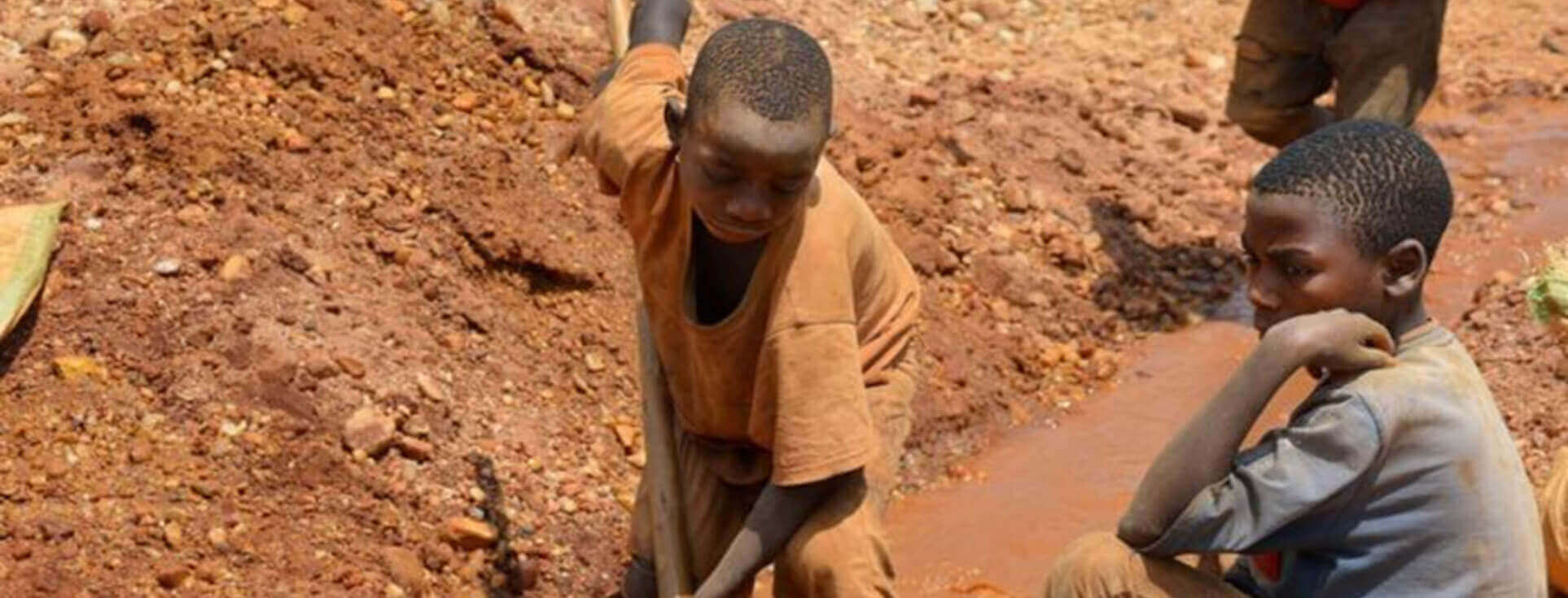Customer Success Story:
Where Others Have Failed, Publican’s Digital Vetting Uncovers Exploitative Labor in Congo’s Cobalt Mines
Not every country has the same labour protections, which means product supply chains can sometimes include practices that exploit vulnerable people to work, including forced and child labour, with the import country often oblivious to its role in the production journey. In 2021, International Labour Organisation (ILO) estimates suggested around 27.6 million people fell victim to forced labour, 3.3 million of which were children.
Congo’s Cobalt Rush
For years, the African continent has struggled significantly with this issue, particularly in the Democratic Republic of Congo (DRC) where more than half the world’s cobalt supply comes from, a material used to produce batteries for electronic devices and cars (EV) around the world. In this emerging sector, EV manufacturers have become increasingly reliant on Chinese suppliers for critical materials. China currently dominates the scene in Africa operating 15 out of the 19 largest cobalt mines in the DRC— which has not come without its problems.
Many Chinese-operated sites in DRC have been dogged by reports of exploitative work practices, including use of forced labour alongside utilizing children as young as six working up to 14-hour days under hazardous conditions. In the southern Katanga province, more than forty thousand children are currently working under such conditions.
When you have a high demand for raw materials concentrated in a specific region where protections are minimal and local supply chains can be easily manipulated, exploitation is usually never too far behind. And with global cobalt demands expected to multiply eight-fold by 2026—such exploitative labour practices are only likely to intensify.
A Case of Lacking Supply Chain Visibility
One of the largest battery material suppliers to the electric vehicle industry is Zhejiang Huayou Cobalt Co., a key player in Congo’s cobalt mining landscape. The company has received considerable scrutiny in the past, with its subsidiary Congo DongFang International Mining (CDM) accused of running primitive “artisanal” mines in DRC under suspect and hazardous conditions.
For authorities, the central problem here lies in the lack of visibility into the entire supply chain. Huayou Cobalt owns and operates subsidiaries which run informal artisanal mines, these are smaller-scale operations that are not compelled by the same oversights and where ‘official’ information is at a minimum. So, in order to begin truly addressing exploitative labor in DRC, authorities need the capacity to uncover more insight from unregulated sites where exploitation tends to be most rampant.
How Publican Addresses This?
By going above-and-beyond standard checks in its pursuit of insight, Publican’s Digital Shipment Vetting solution was able to identify various instances of child labour in CDM-controlled sites by leveraging massive proprietary data loads designed to inspect every sinew of the supply chain.
- It did this by analysing every single entity connected to CDM, Huayou Cobalt’s subsidiary, using real time insights and a completely unique intelligence knowhow to uncover digital behaviour patterns indicative of child labour having taken place.
-
By combining these patterns with multi-dimensional analyses, Publican managed to identify subtle inconsistencies deep within the shipment’s declaration to instantly flag signs indicating the use of exploitative labour during the mining stage.
- It also gathered deeper insights into the CDM’s operations, its links with global manufacturers, the abusive nature of child labor taking place, and the deadly health risks minors are being exposed to.
Ultimately, the quest for Congo’s cobalt has demonstrated how the electric and clean energy revolution, meant to save the planet from perilously warming temperatures in an age of enlightened self-interest, is caught in a familiar cycle of exploitation, greed and gamesmanship that often puts profit and economic aspirations above all else.
But just as potent are the powers of digital data-driven vetting, which give us the opportunities to address these threats, illuminate complex supply chains and cut off the oxygen of exploitative practices that exist within global trade. For more information, visit https://publican.ultra.global/
Get in touch
-
21 Soho Square London W1D 3QP, UK



